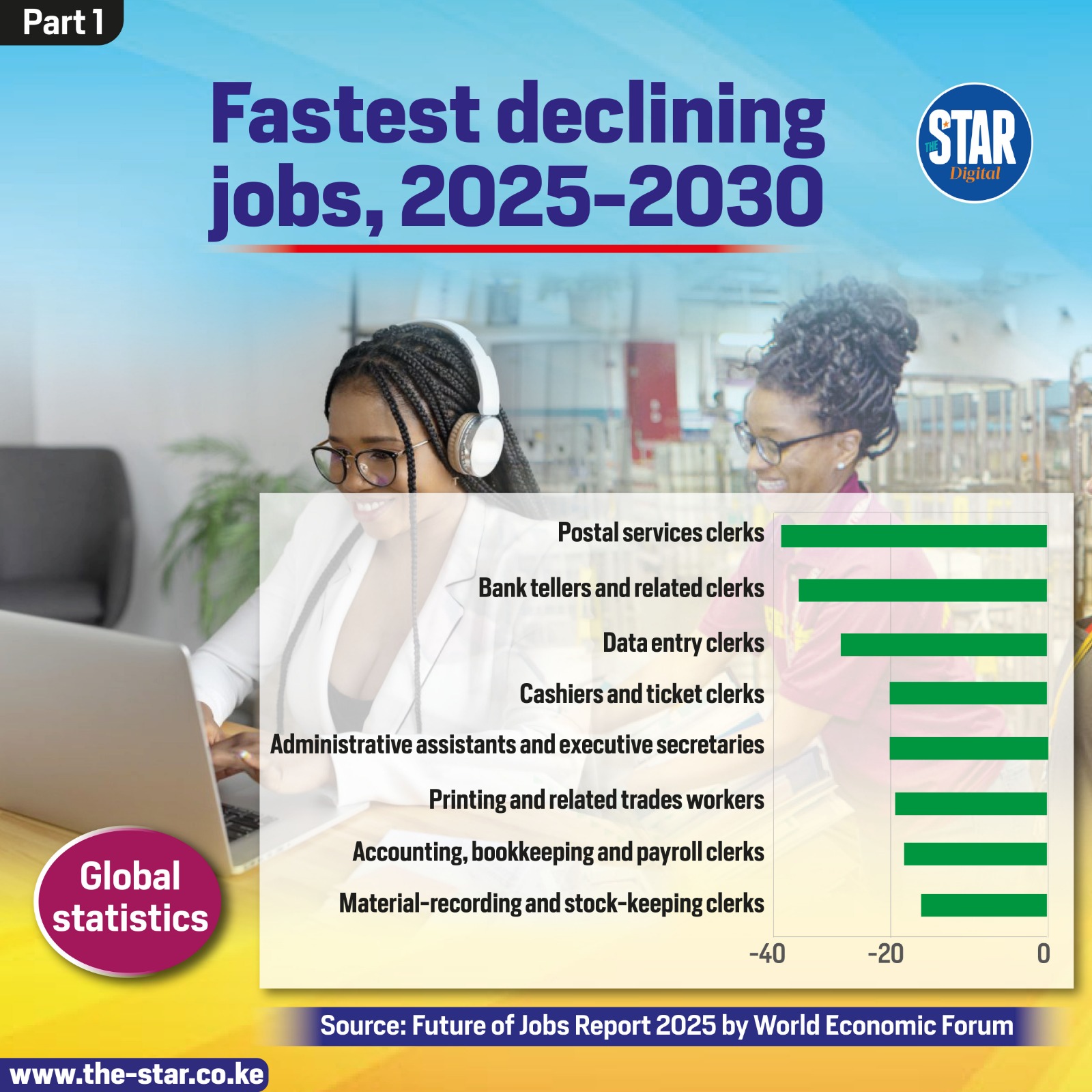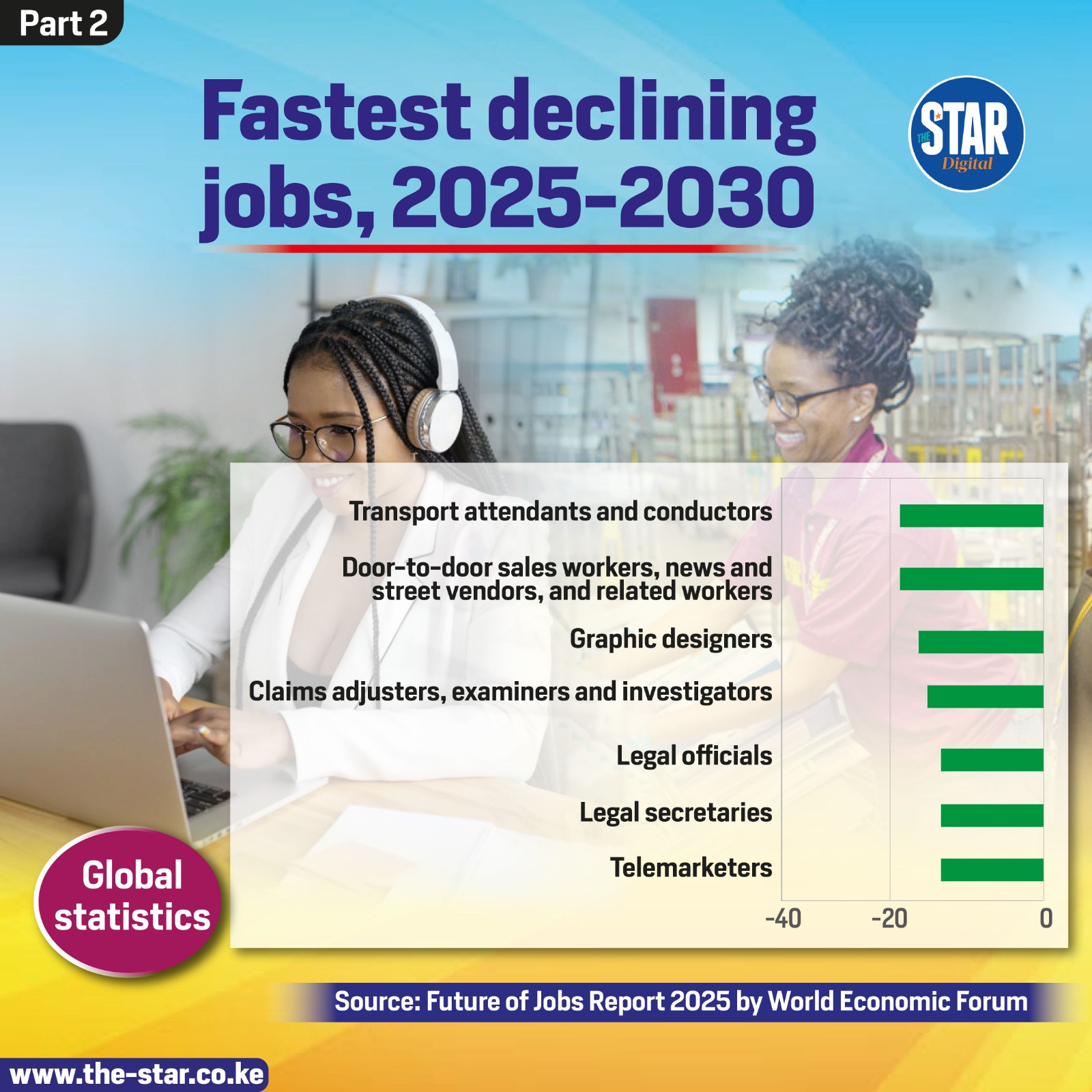The World Economic Forum report Future of Jobs 2025 highlights that, without proper decision-making frameworks, economic incentives, and potentially government regulations, there is a risk that technological advancements may prioritize replacing human labor, which could lead to increased inequality and unemployment.
Although generative AI is currently viewed as more transformative, robots and autonomous systems have experienced steady annual growth of 5–7% since 2020. By 2023, the global average robot density reached 162 units per 10,000 employees—double the figure from seven years ago.
According to surveyed executives, the jobs expected to decline most rapidly this year include clerical positions such as cashiers and ticketing clerks, administrative assistants, executive secretaries, printing workers, accountants, and auditors.
World Economic Forum attributes this trend to advancements in digital access, AI, information processing technologies, and robotics, which are driving these changes in the labor market.


 ROSA MUMANYI
ROSA MUMANYI ROSA MUMANYI
ROSA MUMANYI








